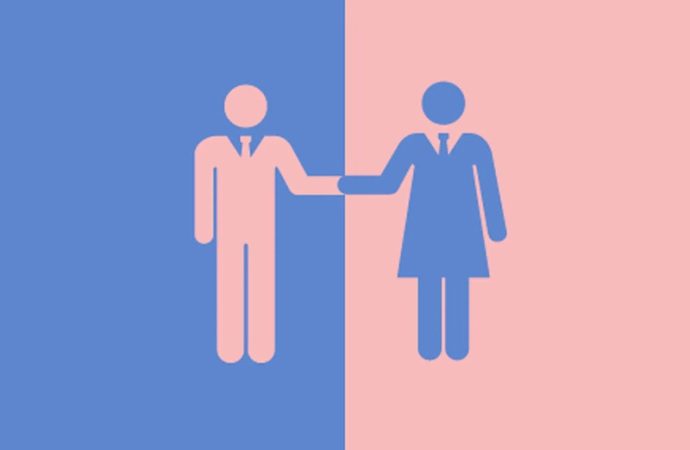Introduction Equality is a fundamental human right that should be enjoyed by every individual, regardless of their race, gender, religion, or sexual orientation. However, despite significant progress in recent years, there still exist numerous barriers to achieving true equality for all. The good news is that laws can play a crucial role in breaking down
Introduction
Equality is a fundamental human right that should be enjoyed by every individual, regardless of their race, gender, religion, or sexual orientation. However, despite significant progress in recent years, there still exist numerous barriers to achieving true equality for all. The good news is that laws can play a crucial role in breaking down these barriers and promoting greater equality. In this blog post, we will explore the vital role of law in promoting equality and highlight some examples of laws that have already made a positive impact on people’s lives. So fasten your seatbelts as we delve into the exciting world of law and its transformative power!
What are the existing barriers to equality?
Although we have made significant strides towards achieving equality, there are still many barriers that prevent us from reaching true equality for all. One of the most prominent barriers is discrimination based on race or ethnicity. Many people face unequal treatment and prejudice purely because of their skin color or cultural background.
Another barrier is gender inequality, where women face disadvantages in education, employment opportunities, and pay compared to men. This can lead to a cycle of poverty that is difficult to break out of.
Other barriers include discrimination against those with disabilities, socioeconomic status, sexual orientation or gender identity. These groups often experience exclusion from access to resources like healthcare and education.
Moreover, systemic issues like redlining practices in housing policies continue to create unequal access to economic opportunity and social mobility for marginalized communities.
These existing barriers challenge our progress towards achieving a truly equal society. We must work together as individuals and lawmakers alike to recognize these challenges and break them down through proactive legislation aimed at ending discriminatory practices across all sectors of society.
How can law help to break down these barriers?
Laws play a crucial role in promoting equality by prohibiting discriminatory practices and setting standards for fair treatment. Through legislation, regulations, and court decisions, law can help to break down existing barriers that prevent people from enjoying equal opportunities.
One way that law promotes equality is through anti-discrimination laws. These laws protect individuals from discrimination based on characteristics such as race, gender, religion or sexual orientation. By making it illegal to discriminate against someone based on these factors, the law helps ensure that everyone has an equal chance to succeed regardless of their background.
Another way that law can promote equality is through affirmative action policies. These policies recognize that certain groups have historically been disadvantaged and take steps to level the playing field. For example, universities may adopt affirmative action programs aimed at increasing diversity among students.
In addition to specific legal provisions aimed at promoting equality, courts also play a critical role in interpreting and enforcing these laws. When cases arise involving discrimination or unequal treatment under the law, courts have the power to interpret existing laws in ways that promote greater fairness and equity.
While there are many obstacles standing between individuals and true equality of opportunity – including social attitudes and economic disparities – law plays an important part in breaking down those barriers by providing protections against discrimination and other forms of unfair treatment.
What are some specific examples of laws that promote equality?

Image by: Yandex.com
Laws play a crucial role in promoting equality and breaking down existing barriers. There are several examples of laws that promote and protect equal rights for all individuals, regardless of their gender, race, religion or any other characteristic.
One example is the Civil Rights Act of 1964 in the United States which prohibits discrimination based on race, color, religion, sex, or national origin. This act has been instrumental in ensuring equal opportunities for all Americans in various areas such as employment and education.
In South Africa, the Promotion of Equality and Prevention of Unfair Discrimination Act was enacted to address historical imbalances caused by apartheid. The law prohibits unfair discrimination against anyone including those who belong to marginalized groups.
The Indian Constitution provides its citizens with fundamental rights such as right to equality before the law without any discrimination based on caste or creed. Additionally, affirmative action policies known as reservations are implemented to ensure representation from historically marginalized communities in educational institutions and government jobs.
These examples demonstrate how laws can be used as powerful tools to break down barriers that hinder progress towards greater equality.
Challenges in Using Law to Promote Equality
While the law is a powerful tool, it faces several challenges in promoting equality:
- Slow change: Legal reforms can take years to pass, leaving inequalities unaddressed.
- Gaps in coverage: Some forms of discrimination may not be explicitly covered by existing laws.
- Unequal access to justice: Legal support and resources are not always available to those who need them most.
- Cultural resistance: Laws may face opposition in communities with deeply rooted biases.
These challenges highlight the need for continuous improvement and commitment to enforcing and updating equality laws.
Examples of Progress Through Law
History offers many examples of how legal action has advanced equality. Laws ending segregation in schools, protecting voting rights, and ensuring equal pay have made significant changes in society. Internationally, treaties and agreements have set global standards for human rights, influencing national laws and inspiring reforms worldwide.
The Connection Between Law and Social Change
Laws not only reflect societal values but also shape them. When equality laws are implemented effectively, they can influence public attitudes and promote cultural shifts toward acceptance and fairness. Over time, legal protections can help normalize inclusive behaviors, making equality a standard expectation rather than a special effort.
The Importance of Participation
For laws to be truly representative and effective, communities must participate in the law-making process. This includes voting, engaging in public discussions, and working with advocacy groups. By sharing experiences and concerns, individuals can help ensure that laws address real-world issues and promote fairness for everyone.
Looking Ahead: The Future of Equality Laws
The fight for equality is ongoing. New challenges—such as digital discrimination, economic inequality, and climate justice—require updated legal frameworks. As technology changes how we live and work, laws will need to evolve to protect rights in new environments.
The future of equality depends on maintaining a balance between strong legal protections and active public engagement. When laws are supported by informed communities, they are more likely to succeed in breaking down barriers and promoting lasting fairness.
Conclusion
The role of law in promoting equality cannot be overstated. While there are existing barriers to achieving true equality, laws can help break down these barriers by providing a framework for change and holding individuals and institutions accountable for their actions.
Through legislation such as anti-discrimination laws, affirmative action policies, and equal pay regulations, governments have the power to promote equality and ensure that all individuals are given equal opportunities regardless of their race, gender or socioeconomic background.
However, it is important to note that while laws are an important tool in promoting equality they alone cannot solve systemic issues. It requires collective efforts from everyone involved – lawmakers, activists, educators and individuals alike. Only then can we truly break down barriers towards a more equitable society where everyone has an opportunity to thrive.

















Leave a Comment
Your email address will not be published. Required fields are marked with *